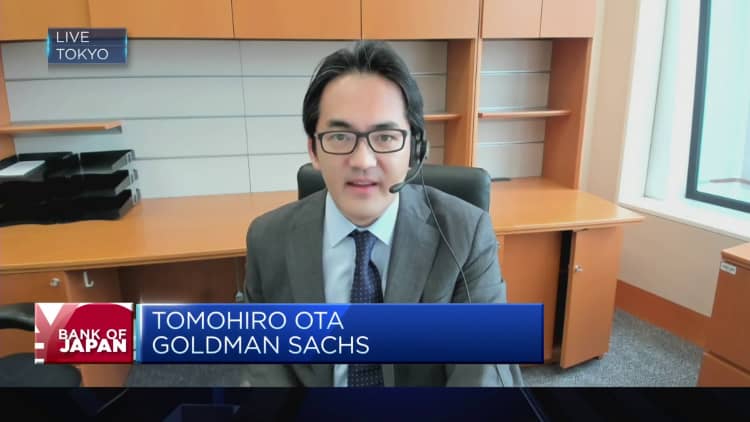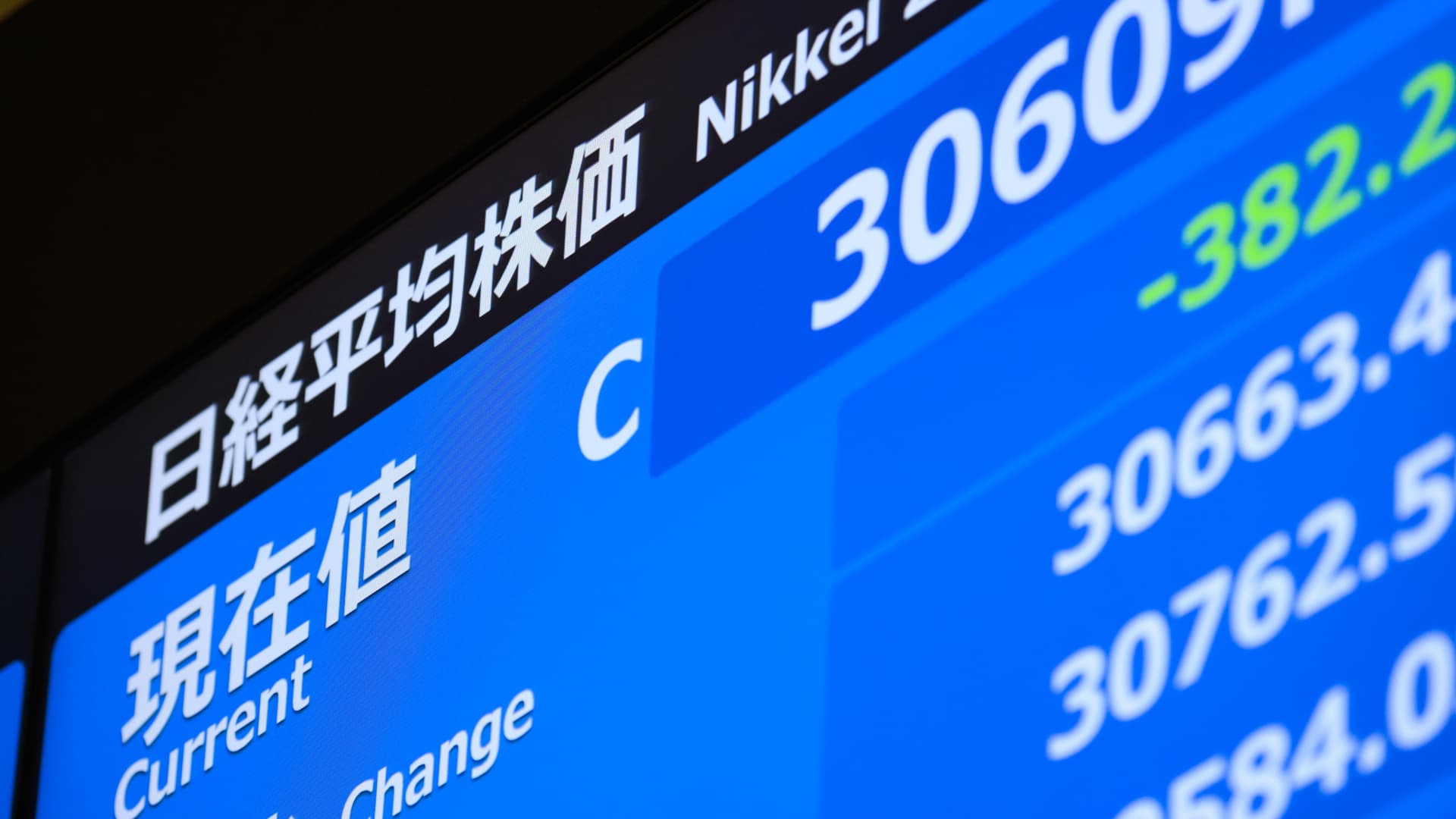A screen displays the Nikkei 225 Stock Average figure at the Tokyo Stock Exchange (TSE), operated by Japan Exchange Group Inc. (JPX), in Tokyo, Japan, on Monday, Oct. 30, 2023. The expansion of Israel’s ground operations in Gaza added more pressure to global markets as investors prepare for a busy week packed with major central bank decisions and a high-stakes announcement of US bond sales. Photographer: Akio Kon/Bloomberg via Getty Images
Bloomberg | Bloomberg | Getty Images
Japan is Asia’s best-performing market for 2023, with the Nikkei 225 advancing 28% to hit levels not seen since 1989.
The Nikkei notched record highs at the end of 1989 on the back of a real estate and equity bubble. And when it burst, the country was plunged into a period of economic slowdown, often referred to as Japan’s “lost decade.”
But, this time, it is different.
Real estate prices have not soared around the nation as in the late 1980s, and Japan has seen structural changes in 2023.
Companies have been posting better results, partly due to a weaker yen, which has made products more competitive.
Corporates are also spending more, with a June 23 report by Nikkei saying that capital investment by Japanese companies was set to hit a record 31.6 trillion yen ($221.03 billion) in fiscal year 2023.
The report said investments into the country, which make up about two-thirds of the Japanese companies’ overall investment, are expected to see double-digit percentage growth for a second straight year. Their overseas investment could also increase by 22.6%, a third straight year of double-digit growth.
Foreign interest has also played a part in Nikkei’s outperformance, underpinned by billionaire investor Warren Buffet’s bullish outlook on Japanese equities.
Foreign investors have found opportunities in Japan, thanks to a weaker yen and higher upside potential for equities.
Dong Chen, head of macroeconomic research at private bank Pictet said in June that global companies were diversifying supply chains away from China, and it could benefit Japan, “particularly in the very high end, more technologically dense sectors like semiconductors.”
“All these things are pointing to the right direction, we think that there are reasons to be more structurally positive about Japan than before,” he added.
Stronger yen to hurt stocks?
The yen is expected to outperform in 2024, according to Peggy Mak, Research Manager at Phillip Securities Research.
The Japanese yen has weakened considerably since the start of the year, touching 151.67 on Oct. 31, which was its lowest level against the dollar since 1990. Year to date, it has weakened 7%.

Mak now anticipates the currency could strengthen against the greenback once interest rates globally start falling, with inbound tourism, a rise in real wages and high savings rates supporting the currency.
Yue Bamba, head of active investments for Japan from Blackrock Investments thinks that the yen is undervalued, and “has room to strengthen” over the next year or so.
“Our view on the currency is that we think the yen is undervalued and it has room to appreciate over the next few months, and that that is not detrimental to the stock market,” Bamba said.
The big picture
Moving forward, the Bank of Japan is expected to shift from its ultra-easy monetary policy and relax its yield curve control measures.
Under Kazuo Ueda, who was appointed BOJ governor in February, the bank has loosened the upper limit around its yield curve control policy, resulting in Japanese government bond yields breaching 11-year highs. The 10-year JGB yield hit 0.956% on Nov. 1, its highest level since April 2012.
Ueda, however, has reaffirmed his stance that the BOJ will maintain its negative interest rate policy until its inflation target of 2% can “sustainably be achieved.” The BOJ’s benchmark interest rate currently stands at -0.1%.
Japan’s nationwide inflation has soared above 2% for 19 straight months. The so-called “core-core” inflation, which strips out prices of fresh food and energy, came in at 4% in October, staying above the 2% target for a 13th straight month.
“Japanese real wages are growing, and the labor market is tight. Given Japan’s deflationary record, inflation is welcome, and so far, it seems healthy,” Ronald Temple, chief market strategist at Lazard Asset Management said in his 2024 outlook report.
The market will watch for a “formal end” to yield curve control, and then the focus will shift to when will the BOJ end its negative interest rate policy, Temple said.
Senior macro strategist Homin Lee at Lombard Odier thinks that 2024 will be a “solid” year for Japan’s wage growth, saying that labor demand in the service sector is strong, and confidence of workers in their unions is rising.
Lee highlighted that the Japanese Trade Union Confederation estimates a 5% wage increase during the 2024 spring wage negotiations.
“The indication for 2024 suggests wage growth will be sufficient for the BoJ to consider ending NIRP,” Temple said.
Wage growth for Japan will also support consumption and business investments, with Lee expecting the world’s third largest economy to grow 1.2% in 2024.


